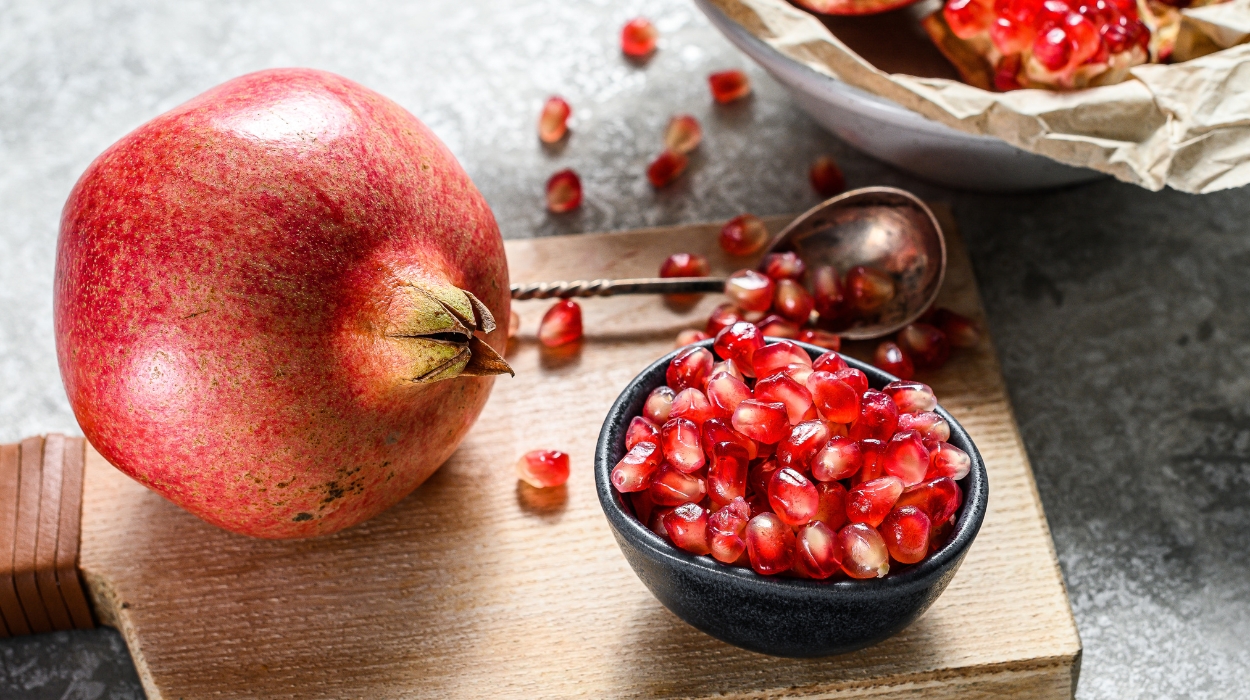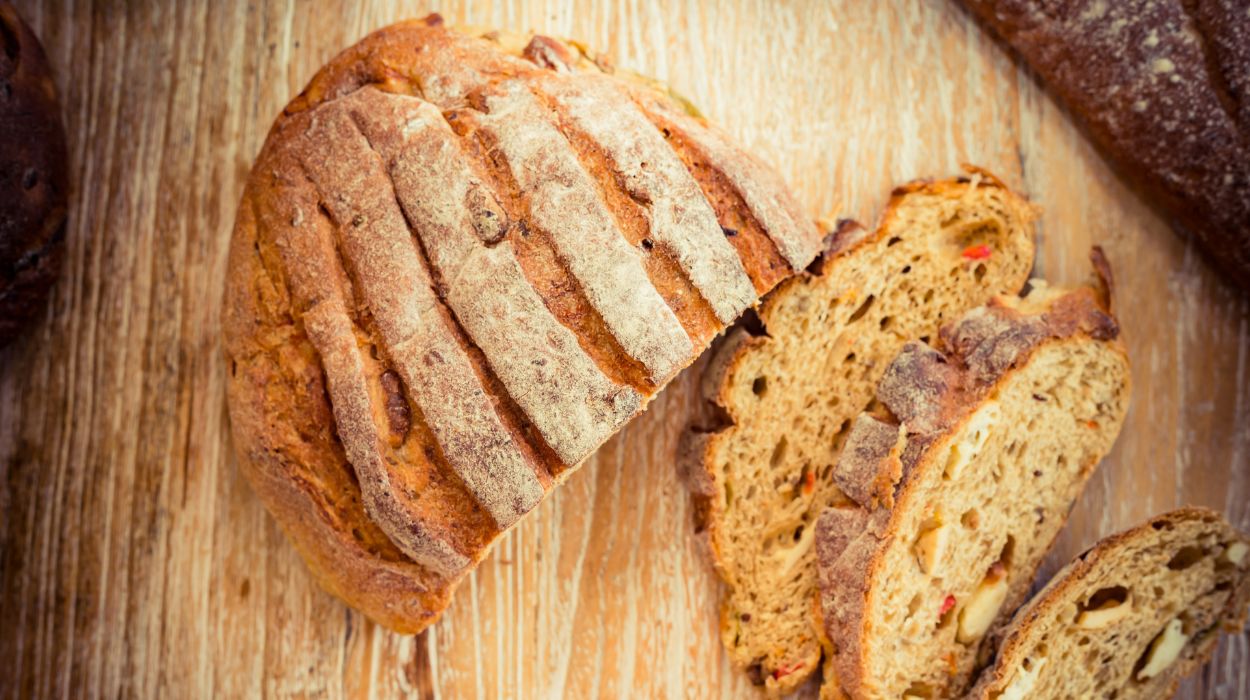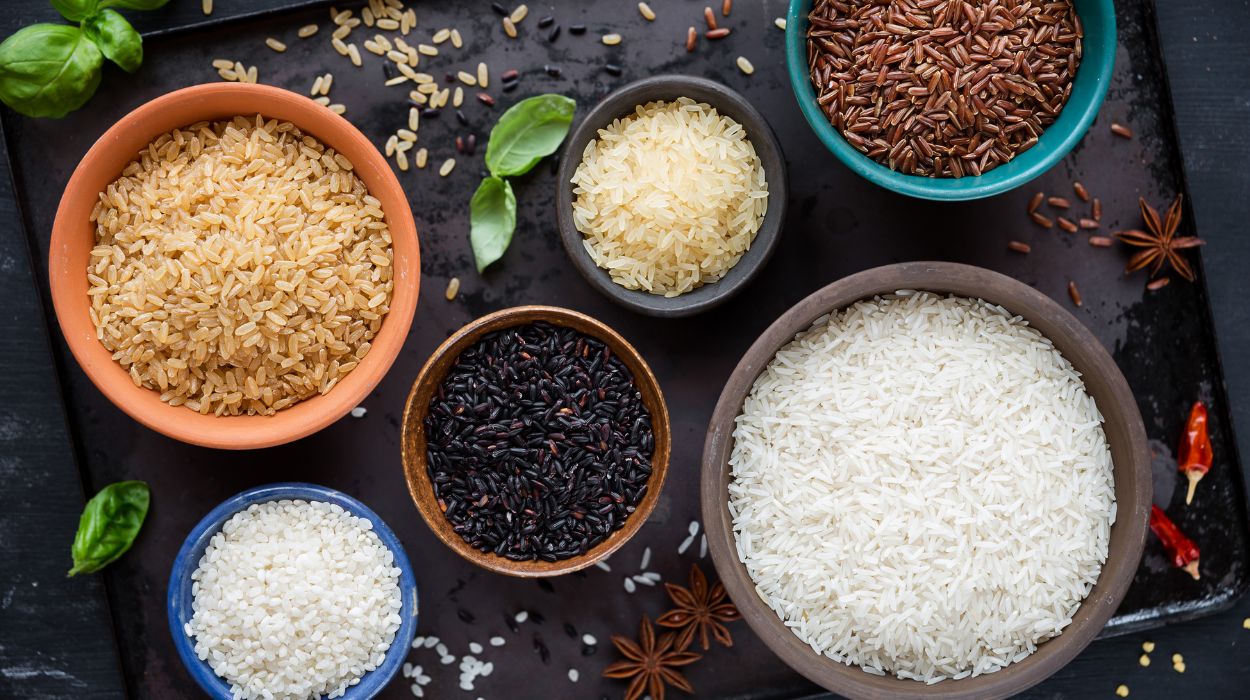Are Sprinkles Vegan? Guide & Vegan Alternatives 2023
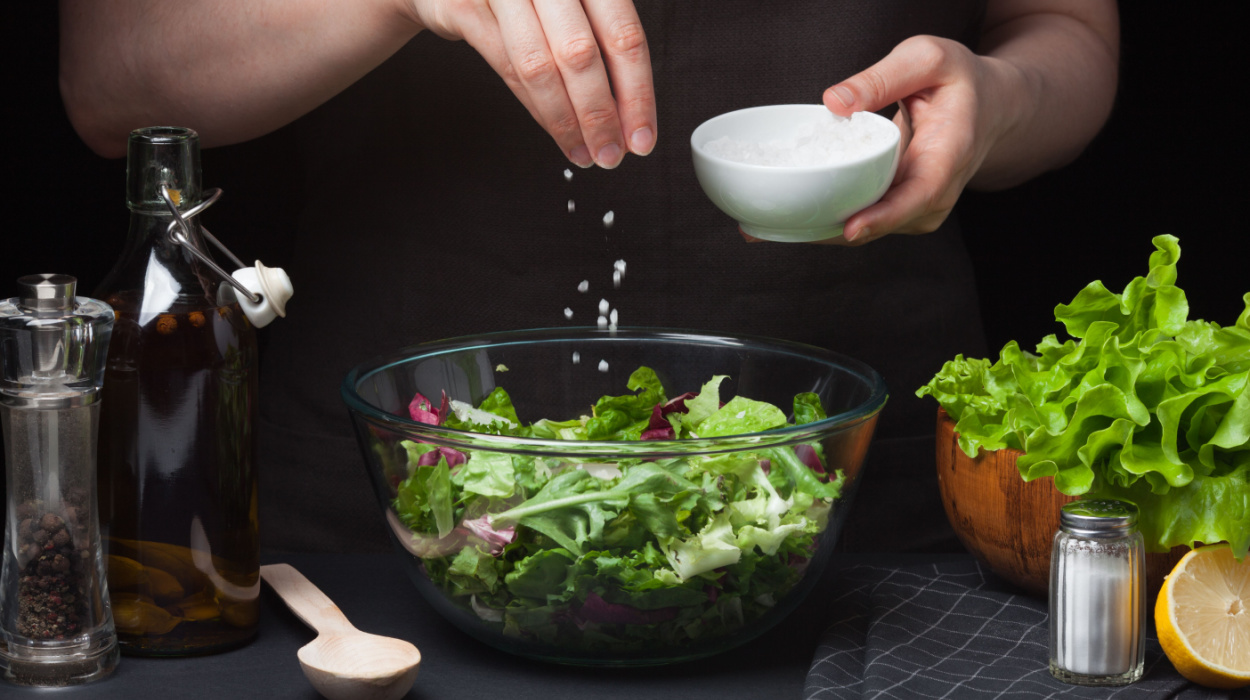
Sprinkles can be vegan, but it depends on the ingredients used to make them.
Who doesn’t love sprinkles? These colorful toppings bring joy to our favorite treats, from childhood delights to adult indulgences. But what if you’re on a vegan diet? You might be wondering — can I enjoy my sprinkles guilt-free? Are sprinkles vegan? We’ll explore the world of sprinkles and veganism,[1] uncovering the truth about these tiny delights.
You’ll learn what goes into making sprinkles and whether they align with your vegan lifestyle.
We’ll also address the confectioner’s glaze dilemma and whether it fits the vegan criteria. So prepare to unravel the mystery of whether vegans can indeed indulge in sprinkles and find out which non-vegan ingredients to watch out for.
Can Vegans Eat Sprinkles?
No, sprinkles are not vegan-friendly. The recipe calls for sugar which is not vegan-friendly and may also contain non-vegan components like confectioner’s glaze derived from insects, beeswax coating, and dairy powder.
Still, there are vegan-friendly options available. Look for vegan sprinkle brands without the mentioned ingredients, or try homemade sprinkles using plant-based colors and organic sugar. Opt for a balanced diet with fruits and veggies while adding sprinkles in moderation.
Can Vegans Eat Sprinkles?
Can vegans eat sprinkles? The answer isn’t straightforward. While many sprinkle ingredients are vegan-friendly, all varieties contain non-vegan components like sugar; some even contain dairy and glaze. These additives come from animal sources and may not align with a vegan diet.
However, there’s good news — you can still enjoy vegan baking and use vegan chocolate sprinkles in your vegan lifestyle! To incorporate sprinkles into your vegan diet, seek out brands that use vegan ingredients and avoid animal-derived components. Carefully reading the labels will help you identify suitable options, ensuring your treats remain cruelty-free and in line with your ethical choices.
If you prefer complete control over your sprinkles’ ingredients, consider making your own at home. But homemade versions may not exactly replicate the commercial ones in sweetness and vibrancy. However, they offer a healthier alternative. You can experiment with various natural coloring options and sugar alternatives to add a touch of fun to your natural sprinkles.
For a fancier sprinkles experience, choose sprinkles made with zein instead of the regular glaze. Zein is a protein derived from maize, sharing similarities with wheat gluten.[2] It’s sometimes called corn protein or vegetable protein.
As plant-based diets are popular, the interest in healthier and ethically conscious alternatives increases. This has made zein sprinkles an excellent choice[3] for many vegans, vegetarians, and anyone seeking a more plant-based lifestyle. While sprinkles may not provide significant nutritional value, they can bring color and excitement to your dishes, especially with colorful vegan rainbow sprinkles.
Remember that focusing on a balanced vegan diet, rich in fruits and veggies, ensures you’re getting essential vitamins and minerals. Sprinkles, when consumed in moderation and in combination with a nutrient-rich diet, can be a delightful addition to your vegan culinary adventures.
What Are Sprinkles Made From?
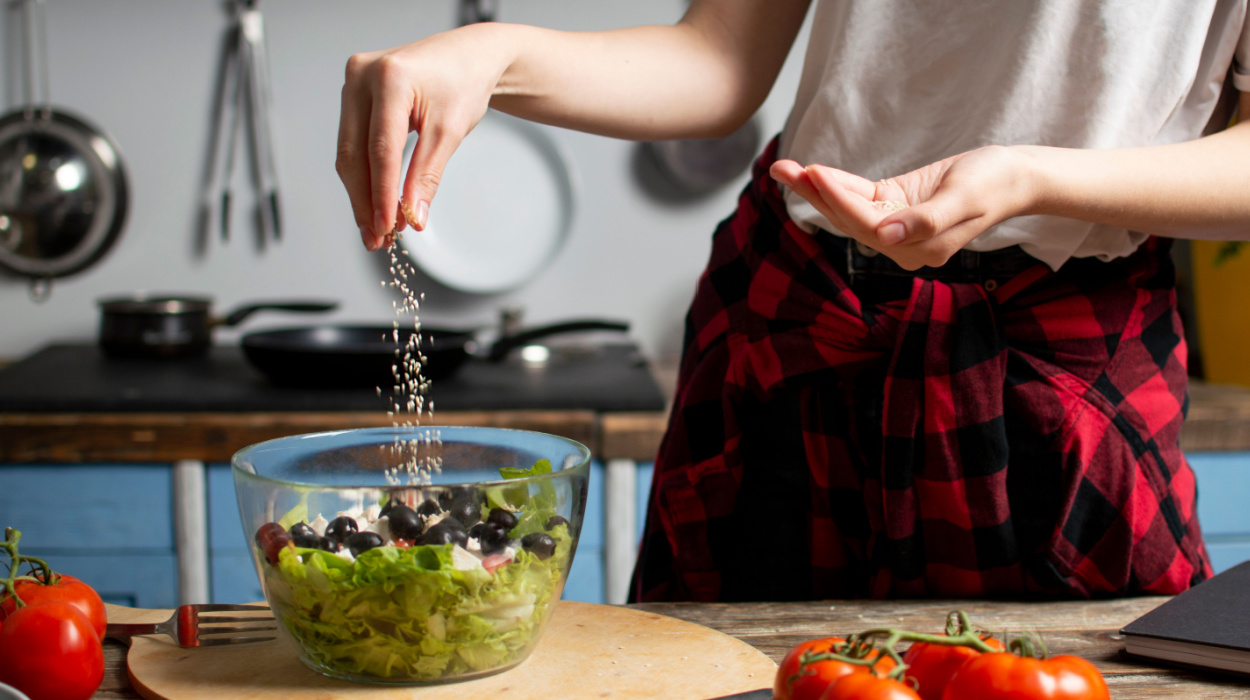
Sprinkles are made from a delightful mix of ingredients. Knowing what’s in your treat is vital when exploring vegan food and healthy diet options.
The main components of most sprinkles include:
- Sugar.
- Corn syrup.
- Corn starch
- Artificial colors.
- Confectioner’s glaze, in some cases.
However, the specific ingredients may vary between different vegan sprinkle brands. While sugar and cornstarch form the bulk of the recipe, additional elements like milk powder, soy lecithin, peanut butter, and cocoa powder might find their way into the mix.
The ingredients are blended together to form a doughy paste, which then undergoes extrusion using a specialized machine. The extruder shapes the mixture into various forms, though the most common one is the thin, long strands we typically recognize as sprinkles.
After shaping, these noodle-like strands are broken down into the familiar, edible confetti we sprinkle over our baked goods and ice cream.
For those who enjoy getting creative in the kitchen, homemade versions of sprinkles offer a chance to experiment. Some homemade recipes incorporate natural or artificial sweeteners like stevia, and some incorporate protein-rich ingredients such as egg whites and starch to add thickness.
Creative cooks may use beetroot powder, turmeric, organic cane sugar, or shredded dried fruits to bring out different flavors and colors. One curious ingredient that might be present in commercial sprinkles is food-grade wax. This element helps prevent the sprinkles from sticking together or melting in our hands, ensuring they remain picture-perfect atop our sweet treats.
Confectioner’s Glaze & Veganism
Confectioner’s glaze, also known as shellac, is a common ingredient that provides a glossy coating to various food products, including sprinkles. The Food and Drug Administration classifies it as generally safe,[4] but you should understand its origin and implications for veganism.
Shellac is derived from the resinous glaze of certain insects. This origin makes it non-vegan since it is from an animal source.
The process of obtaining shellac involves harvesting the cocoon of the lac insect, where the female produces resin. Once the eggs hatch, they consume the female lac insect, and the harvested cocoon becomes the source of shellac. This extraction method[5] clearly contradicts the principles of a vegan diet, which seeks to exclude all animal-derived products.
This reaffirms that shellac is not suitable for vegan consumption. While the FDA may consider it safe, veganism centers around ethical considerations, avoiding any exploitation or harm to animals in the production of food and other products.
So, when searching for the best vegan sprinkles or considering options for vegan meal replacement, look for alternatives to glaze. Fortunately, there are vegan-friendly options available in the market. These provide the same colorful and glossy appeal without compromising ethical values.
Non-Vegan Ingredients In Sprinkles To Avoid
When choosing sprinkles for your vegan food, watch out for these non-vegan sprinkles ingredients:
- Confectioner’s glaze is made from shellac.
- Beeswax coating.[6]
- Dairy powder.
- Cane sugar which uses bone char in its refinement process.
- Artificial flavorings, colorings, or additives.
While sprinkles can be a fun meal addition, be mindful of their ingredients. Avoid vegan sprinkles made with carnauba wax and other natural alternatives like green powders, cocoa powder, or shaved chocolate.
Sprinkles with ingredients like grape seed powder and cocoa powder for athletes seeking nutritious options[7] can be excellent choices. Prioritize a balanced diet that complements your active lifestyle. Also, consider exploring vegan meal delivery options for convenient, wholesome meals.
The Bottom Line
Sprinkles can be both a delightful and challenging addition to a vegan diet. Most are not vegan-friendly, containing ingredients like cane sugar. However, some vegan sprinkles contain vegan components such as organic sugar. Awareness of these ingredients empowers you to make informed choices when selecting vegan meal sprinkle options.
Fortunately, the growing popularity of veganism has led to an increasing number of sprinkle brands offering plant-based alternatives. These include those made with zein or green powders. Making homemade vegan sprinkles is a creative and wholesome solution for anyone seeking cruelty-free options.
Crafting your sprinkles allows you to customize the flavors and colors while adhering to your vegan principles. A vegan diet can be nutritious and diverse, especially when complemented with various fruits and veggies. While sprinkles may not provide significant health benefits, they can add visual appeal to your vegan recipes.
Frequently Asked Questions
1. What sprinkles are suitable for vegans?
Look for a vegan sprinkle brand without cane sugar, glaze or dairy additives. Check labels for plant-based coloring and avoid sugar from bone char such as cane sugar.
2. Are colored sugar sprinkles vegan?
Not all colored sugar sprinkles are vegan. Avoid those made with non-vegan additives like glaze or dairy ingredients, and choose only colorful vegan sprinkles.
3. Are Christmas sprinkles okay for vegans?
All commercial sprinkles can be considered non-vegan because they use sugar made from bone char. Use only those sprinkles marked vegan.
4. Are sprinkles gluten-free and vegan?
Vegan status doesn’t guarantee a product is made with gluten-free ingredients. Check labels for wheat or gluten additives. And, no, commercial sprinkles are not suitable for vegans.
5. Are sprinkles dairy-free?
Not all sprinkles are dairy-free. Check for dairy additives like milk powder or butter. Choose vegan brands or make your own dairy-free sprinkles using alternative ingredients like nut milk powder.
6. Can I find vegan sprinkles in stores?
Yes, many grocery stores offer vegan sprinkles. Read labels carefully to ensure they are vegan and free from animal products.
7. Are homemade sprinkles vegan?
Not necessarily. Many anti-inflammatory foods like oats, berries, and spices like turmeric are affordable and easy to find.
8. Can kids benefit from an anti-inflammatory breakfast?
Yes, you can make vegan sprinkles at home. Use plant-based ingredients, such as green powders or beetroot, for coloring and beet sugar or organic sugar for sweetening.
Resources
MANA adheres to strict sourcing guidelines and abstains from utilizing tertiary references. We rely on peer-reviewed studies, academic research from reputable medical associations and institutions to ensure the accuracy of our articles. For more information regarding our editorial process, please refer to the provided resources.
- Dimitra Rafailia Bakaloudi, Halloran, A., Rippin, H.L., Artemis Christina Oikonomidou, Dardavesis, T.I., Williams, J., Kremlin Wickramasinghe, Breda, J. and Michail Chourdakis (2021). Intake and adequacy of the vegan diet. A systematic review of the evidence. Clinical Nutrition, [online] 40(5), pp.3503–3521. doi:https://doi.org/10.1016/j.clnu.2020.11.035.
- Mattice, K.D. and Marangoni, A.G. (2020). Evaluating the use of zein in structuring plant-based products. Current Research in Food Science, [online] 3, pp.59–66. doi:https://doi.org/10.1016/j.crfs.2020.03.004.
- Ana Caroline Jaski, Schmitz, F., Rayta Paim Horta, Cadorin, L., José, B., Jürgen Andreaus, Cristina, M., Riegel-Vidotti, I.C. and Lizandra Maria Zimmermann (2022). Zein – a plant-based material of growing importance: New perspectives for innovative uses. Industrial Crops and Products, [online] 186, pp.115250–115250. doi:https://doi.org/10.1016/j.indcrop.2022.115250.
- Fda.gov. (2023). Inactive Ingredient Search for Approved Drug Products. [online] Available at: https://www.accessdata.fda.gov/scripts/cder/iig/index.cfm [Accessed 29 Jan. 2024].
- Nandkishore Thombare, Kumar, S., Kumari, U. and Kewal Krishan Sharma (2022). Shellac as a multifunctional biopolymer: A review on properties, applications and future potential. [online] ResearchGate. Available at: https://www.researchgate.net/publication/361354270_Shellac_as_a_multifunctional_biopolymer_A_review_on_properties_applications_and_future_potential [Accessed 29 Jan. 2024].
- Fratini, F., Cilia, G., Turchi, B. and Felicioli, A. (2016). Beeswax: A minireview of its antimicrobial activity and its application in medicine. Asian Pacific Journal of Tropical Medicine, [online] 9(9), pp.839–843. doi:https://doi.org/10.1016/j.apjtm.2016.07.003.
- Rogerson, D. (2017). Vegan diets: practical advice for athletes and exercisers. Journal of the International Society of Sports Nutrition, [online] 14(1). doi:https://doi.org/10.1186/s12970-017-0192-9.


